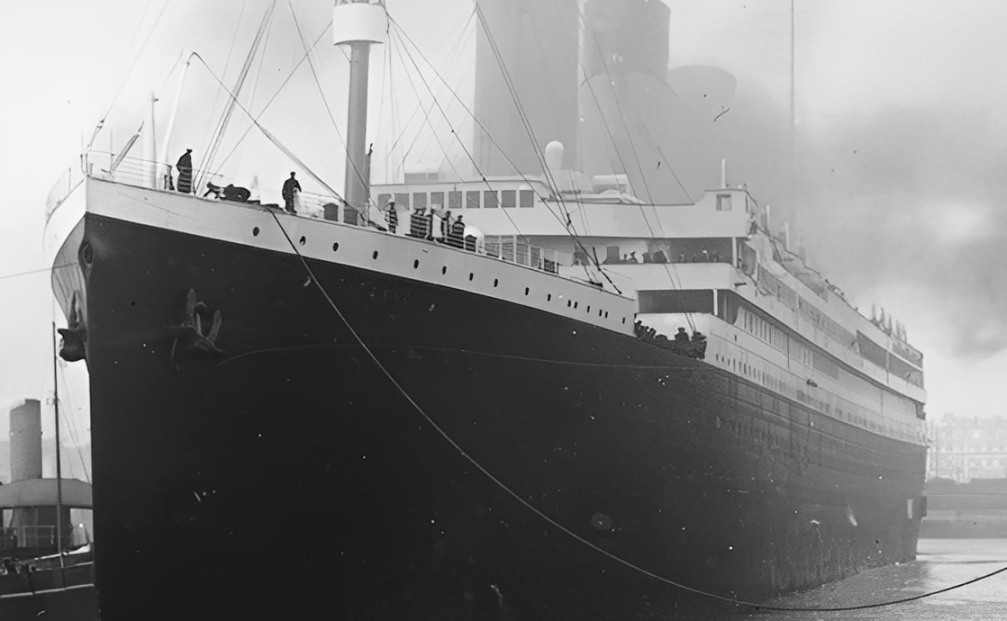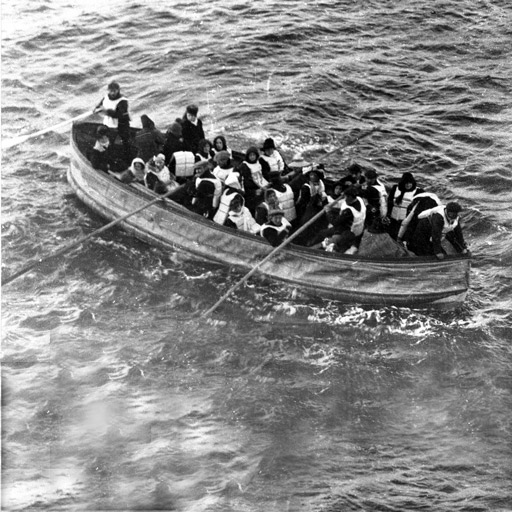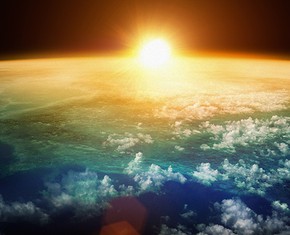The views expressed in our content reflect individual perspectives and do not represent the authoritative views of the Baha'i Faith.
A hundred years ago, immediately after the April 15, 1912 sinking of the Titanic, Abdu’l-Baha answered the question of the “problem of evil” this way:
Within the last few days a terrible event has happened in the world, an event saddening to every heart and grieving every spirit. I refer to the Titanic disaster, in which many of our fellow human beings were drowned, a number of beautiful souls passed beyond this earthly life. Although such an event is indeed regrettable, we must realize that everything which happens is due to some wisdom and that nothing happens without a reason….
When I think of them, I am very sad indeed. But when I consider this calamity in another aspect, I am consoled by the realization that the worlds of God are infinite; that though they were deprived of this existence, they have other opportunities in the life beyond, even as Christ has said, “In my Father’s house are many mansions.” They were called away from the temporary and transferred to the eternal; they abandoned this material existence and entered the portals of the spiritual world. Foregoing the pleasures and comforts of the earthly, they now partake of a joy and happiness far more abiding and real, for they have hastened to the Kingdom of God. The mercy of God is infinite, and it is our duty to remember these departed souls in our prayers and supplications that they may draw nearer and nearer to the Source itself.
Therefore, the souls of those who have passed away from earth and completed their span of mortal pilgrimage in the Titanic disaster have hastened to a world superior to this. They have soared away from these conditions of darkness and dim vision into the realm of light. These are the only considerations which can comfort and console those whom they have left behind.
Furthermore, these events have deeper reasons. Their object and purpose is to teach man certain lessons. We are living in a day of reliance upon material conditions. Men imagine that the great size and strength of a ship, the perfection of machinery or the skill of a navigator will ensure safety, but these disasters sometimes take place that men may know that God is the real Protector. If it be the will of God to protect man, a little ship may escape destruction, whereas the greatest and most perfectly constructed vessel with the best and most skillful navigator may not survive a danger such as was present on the ocean. The purpose is that the people of the world may turn to God, the One Protector; that human souls may rely upon His preservation and know that He is the real safety. These events happen in order that man’s faith may be increased and strengthened. Therefore, although we feel sad and disheartened, we must supplicate God to turn our hearts to the Kingdom and pray for these departed souls with faith in His infinite mercy so that, although they have been deprived of this earthly life, they may enjoy a new existence in the supreme mansions of the Heavenly Father.
Let no one imagine that these words imply that man should not be thorough and careful in his undertakings. God has endowed man with intelligence so that he may safeguard and protect himself. Therefore, he must provide and surround himself with all that scientific skill can produce. He must be deliberate, thoughtful and thorough in his purposes, build the best ship and provide the most experienced captain; yet, withal, let him rely upon God and consider God as the one Keeper. If God protects, nothing can imperil man’s safety; and if it be not His will to safeguard, no amount of preparation and precaution will avail. – Abdu’l-Baha, The Promulgation of Universal Peace, pp. 46-49.
When earthquakes, tornados, typhoons and tsunamis strike, human beings suffer. But in modern times, their suffering comes not so much from the event itself — but instead because of what and where and how we have built our structures and shelters. In the worst disasters, our buildings fall over on us, and our own homes injure and kill us. When we know we live in tornado country, a cellar or a shelter is a good idea. When we know we live in tsunami or hurricane country, houses near the beach should be carefully and strongly constructed, elevated on raised foundations and made to withstand high winds and waves. When we live in earthquake zones, our buildings need strength as well as the ability to flex and absorb movement. We now know enough scientifically that we can guard against and prepare for floods and fires and just about every other kind of natural disaster. If we value human life and care for others we will expend our efforts to make our families and neighbors and communities safe.
In other words, we all have the responsibility for mitigating disasters. As Abdu’l-Baha says, we should all be “deliberate, thoughtful and thorough” in our preparation for the dangers of this physical life — and we should rely upon God as the ultimate protection.
Read the previous article in the series: Natural Disasters and the Problem of Evil

















Comments
Sign in or create an account
Continue with Googleor